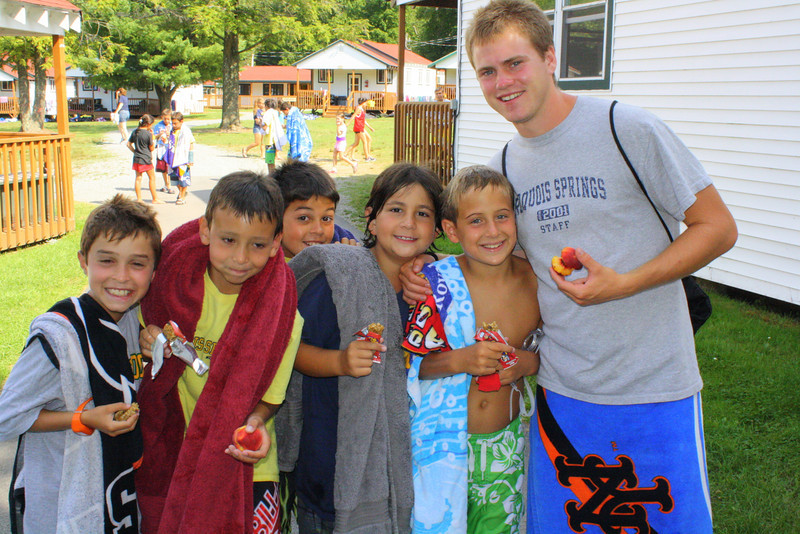The Value of Emotional Intelligence
 Take a moment to think about your favorite teacher, favorite coach, favorite camp counselor, or favorite boss. What makes them so special, so admired and so well respected? Why do they stand out as successful leaders? They most likely have what clinical psychologist and author Daniel Goleman refers to as Emotional Intelligence. They probably exhibit great social skills, patience, empathy, self-awareness and the ability to listen. They may have high intellect as well, but that is probably not what makes them the great leaders they turned out to be. Goleman found that while the qualities traditionally associated with leadership – like intelligence and vision – are required for success, they do not paint the full picture. Intellect can help you get the job, but Emotional Intelligence can help you keep it and continue to climb the ladder of success. Emotional Intelligence involves the ability to recognize and manage one’s own emotions, as well as understanding others’ emotions and effectively communicate with them. Research supports that Emotional Intelligence has also been found to be one of the most important factors in determining quality and satisfaction of relationships, level of achievement in school and work, and emotional well-being and happiness.
Take a moment to think about your favorite teacher, favorite coach, favorite camp counselor, or favorite boss. What makes them so special, so admired and so well respected? Why do they stand out as successful leaders? They most likely have what clinical psychologist and author Daniel Goleman refers to as Emotional Intelligence. They probably exhibit great social skills, patience, empathy, self-awareness and the ability to listen. They may have high intellect as well, but that is probably not what makes them the great leaders they turned out to be. Goleman found that while the qualities traditionally associated with leadership – like intelligence and vision – are required for success, they do not paint the full picture. Intellect can help you get the job, but Emotional Intelligence can help you keep it and continue to climb the ladder of success. Emotional Intelligence involves the ability to recognize and manage one’s own emotions, as well as understanding others’ emotions and effectively communicate with them. Research supports that Emotional Intelligence has also been found to be one of the most important factors in determining quality and satisfaction of relationships, level of achievement in school and work, and emotional well-being and happiness.  Home and school are great places to learn skills of Emotional Intelligence, but summer camp may be the one place where Emotional Intelligence is taught and modeled in a natural setting. There is no need for lesson plans at camp, teachable moments occur on a daily bases. Campers that are living and playing together have an optimal environment to learn skills of sharing, cooperation, empathy, listening, problem solving, and self-awareness. Trained camp staff model behavior that encourages effective social interactions…they facilitate the exploration of feelings and emotions whenever a group conflict arises….they provide structure and appropriate discipline… and maintain a positive environment. Camp teaches healthy relationships, assertive self-expression, and approaching conflict as an opportunity to learn and make positive changes. These lessons are taught in the most ordinary ways. It happens when campers have to wait their turn at waterskiing…when they shout words of support to a peer who is fearful of making it to the top of the climbing wall…when an introverted camper is encouraged to challenges themselves and decides to take a part in the camp play…when a bunkmate who is upset learns to express their feelings with constructive words instead of acting out…when friends sit around the camp fire sharing stories and truly listening to one another.
Home and school are great places to learn skills of Emotional Intelligence, but summer camp may be the one place where Emotional Intelligence is taught and modeled in a natural setting. There is no need for lesson plans at camp, teachable moments occur on a daily bases. Campers that are living and playing together have an optimal environment to learn skills of sharing, cooperation, empathy, listening, problem solving, and self-awareness. Trained camp staff model behavior that encourages effective social interactions…they facilitate the exploration of feelings and emotions whenever a group conflict arises….they provide structure and appropriate discipline… and maintain a positive environment. Camp teaches healthy relationships, assertive self-expression, and approaching conflict as an opportunity to learn and make positive changes. These lessons are taught in the most ordinary ways. It happens when campers have to wait their turn at waterskiing…when they shout words of support to a peer who is fearful of making it to the top of the climbing wall…when an introverted camper is encouraged to challenges themselves and decides to take a part in the camp play…when a bunkmate who is upset learns to express their feelings with constructive words instead of acting out…when friends sit around the camp fire sharing stories and truly listening to one another. The teachable moments are available on a daily basis, and campers learn so much in a short period of time about themselves, how to get along with others, and hopefully becoming great leaders. As more and more children grow into adults who feel good about themselves, manage their emotions effectively, communicate clearly, learn how to resolve conflicts and how to meet their needs in a positive way, we will be raising successful leaders in all areas of life.


